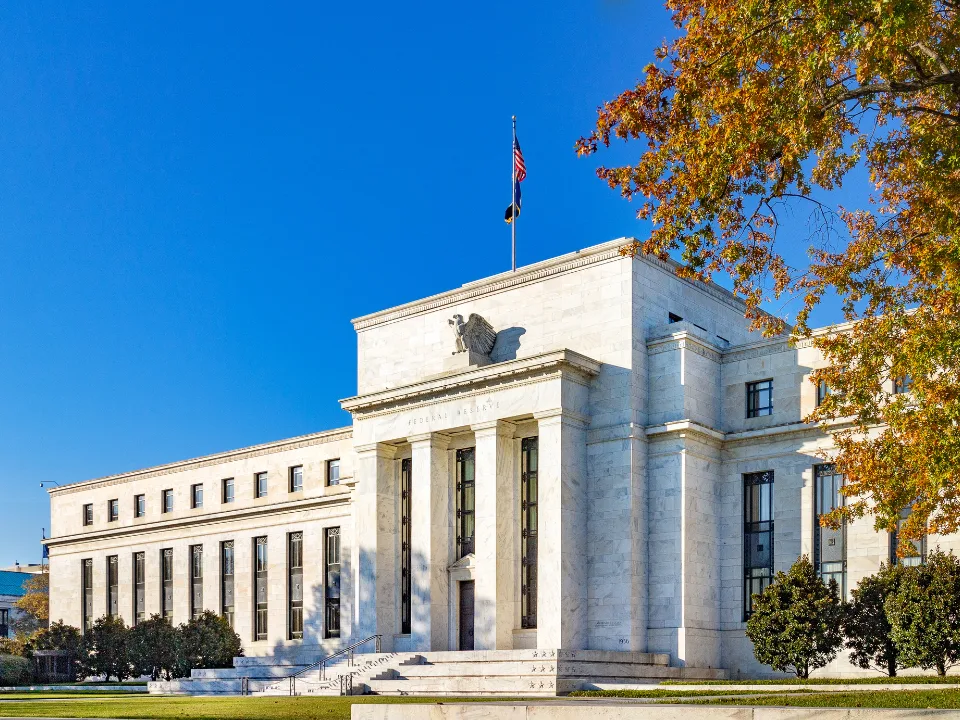- Political pressure on the Federal Reserve is sparking fears of deeper economic distortions, with critics warning that premature rate cuts could steepen the yield curve and unsettle long-term debt markets.
- The yield on the 10-year US Treasury climbed above 4.125% following a quarter-point rate cut, reflecting investor concerns about inflation and policy credibility.
- Experts warn that political interference, inflationary tariffs, and weakening global demand for sovereign bonds could compound instability in long-term US debt markets.
Fed in the Crosshairs
Recent rate cuts by the Federal Reserve, seemingly prompted by escalating pressure from former President Donald Trump, have triggered alarm among economists and global investors, per Bisnow.
Trump has intensified his criticism of the Fed, pushing for deeper cuts while signaling potential leadership changes — including public remarks targeting Fed Governor Lisa Cook.
While central banks typically operate independently, the political interference has raised concerns that monetary policy could be skewed for short-term gains at the expense of long-term stability.
Treasury Yields React to Fed Moves
Despite the Fed’s quarter-point cut on Wednesday, yields on longer-dated Treasuries rose sharply. The 10-year US Treasury yield — a key benchmark for commercial real estate and other long-term borrowing — jumped to 4.125% by early Friday.
“The issue with rates ends up being that we understand that we should not be cutting rates right now,” said Giacomo Santangelo, senior economics lecturer at Fordham University. “The fact we are cutting rates now makes the system much more artificial,” he added, noting that recent tariffs are just starting to impact labor markets and could add inflationary pressure.
Get Smarter about what matters in CRE
Stay ahead of trends in commercial real estate with CRE Daily – the free newsletter delivering everything you need to start your day in just 5-minutes
Global Shifts in Debt Demand
Adding to the uncertainty, demand for long-term sovereign debt is declining. Ali Meli of Monachil Capital Partners highlighted a global shift, particularly in emerging markets, away from traditional government bonds and into alternative assets like gold.
“That has disrupted the traditional source of demand for long-term sovereign bonds,” said Meli, pointing to similar trends in the U.K. and US He warned that global political instability, especially in Europe, could further undermine investor confidence in long-term debt.
Why It Matters
Nomura’s Gareth Nicholson noted that politically motivated policy could erode market trust: “If politics bends policy, I’d fade rallies in the dollar and stay nimble on duration,” he said. Investors are likely to demand higher yields to compensate for inflation risks and policy uncertainty, which in turn could drive up long-term borrowing costs for both the government and the private sector.
What’s Next
Experts caution that further political interference in Fed policy — without corresponding fiscal restraint — could push inflation expectations higher, destabilizing markets and undermining the federal government’s financial footing.
With long-term borrowing becoming costlier and investor confidence wavering, markets will be watching closely for signs of further political influence on the Fed’s next move.


















